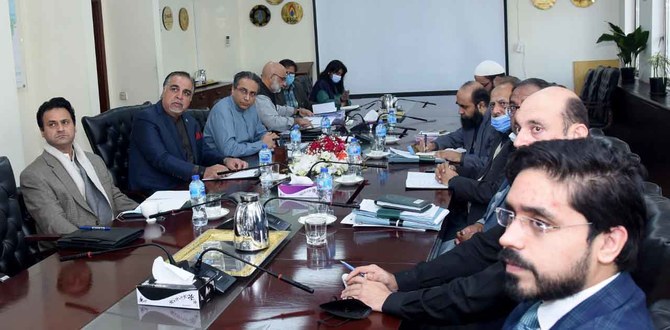KARACHI: The government said on Friday it would continue to supply gas to industrial captive power plants (CPPs) until December instead of abruptly cutting it from February.
“Industrial units, which are not currently connected to the power grid or have electrical connection that are sufficient for their needs, will not be disconnected immediately,” Nadeem Babar, Special Assistant to Prime Minister on Petroleum, assured industrialists in an online meeting held at Karachi’s Governor House.
Pakistan’s Cabinet Committee on Energy (CCoE) said last week it would not give fresh gas connections and discontinue gas supplies to CPPs. The decision was supposed to be implemented from February for most industries and from March for export-oriented industries.
A CPP is an electricity generation facility used and managed by an industrial or commercial energy user for its own energy consumption needs. Captive power plants can operate off-grid or be connected to the national electric grid to exchange excess generation.
Since the start of the winter, Pakistanis using natural gas for cooking and heating, as well as factories and power plants that rely on the fuel, have experienced significant inconvenience due to low gas pressure or no supply at all. Factories and business have been badly affected, threatening jobs and the livelihoods of workers.
Indeed, December and January see the largest spike in demand for gas in Pakistan, but this year authorities have said the demand-supply shortfall is greater on the back of higher consumption and diminishing indigenous supply.
Strongly reacting to the government’s decision, industrialists in a news conference in Karachi on Monday rejected the move, calling it "impossible" in the current situation and warning against its negative impact on the country's exports.
However, the prime minister’s aide on petroleum asked the industrialists to “shift from gas-based captive power generation to the national power grid by December this year,” according to a statement issued by the Petroleum Division on Friday.
“A year is enough to switch over to electricity, but we will have to see if the government manages to develop its capacity to facilitate,” Mian Nasser Hyatt Maggo, president of the Federation of Pakistan Chambers of Commerce and Industry (FPCCI), told Arab News on Friday in a brief comment.
“Gas connections to 118 CPPs, which were disconnected, are being restored,” he added.
After suffering from decades of power production deficits, Pakistan is now facing a different kind of problem which is surplus power generation. Since the start of the China-Pakistan Economic Corridor (CPEC), a large number of power plants have come online with a cumulative generation capacity of about 38,000 megawatts which is likely to reach 40,000 megawatts by 2023. This implies that about half of the power generated will remain unutilized.
Pakistan wants to utilize the surplus power by supplying it to CPPs and divert all the gas they consume to other necessary places and projects.
“The decision is based on the fact that the consumption of scarce natural gas by inefficient CPPs was causing a big national loss. On the other hand, the surplus power generation capacity can be absorbed in these industrial units at competitive rates and through reliable supplies,” Babar said.
Tabish Gohar, Special Assistant to Prime Minister on Power who also attended the meeting, informed the forum that Pakistan had an overcapacity in terms of power generation and its circular debt was a basic economic issue. He added that connecting industries to the national grid would help reduce the burden of take-or-pay charges on the government.
“The present government had announced the electricity tariff support package whereby all industries would get discounted rate on power tariffs on an incremental usage of electricity for the next three years,” he continued.
“Discos [or electricity distribution companies] would expeditiously process new connections and load enhancement applications for industries to ensure quality of supply to industry,” Gohar said.
According the FPCCI president, the meeting also decided to establish a working group to sort out issues pertaining to gas supplies in an amicable manner.
















